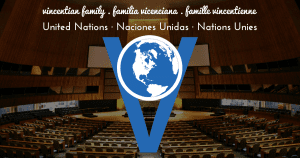The High-level Political Forum on Sustainable Development will be meeting at the United Nations in New York from July 11- 20, 2016. It is the central platform for the follow-up and review of the 2030 Agenda for Sustainable Development and the Sustainable Development Goals, adopted at the United Nations Sustainable Development Summit on September 25, 2015. It is a universal, aspirational and transformative plan of action for the next 15 years, where human dignity will be upheld and planetary sustainability will be maintained, ultimately to “ensure no one will be left behind.”

This forum was created at the 2012 UN Conference on Sustainable Development – known as Rio+20 and it replaces the UN’s Commission on Sustainable Development which was formed after the 1992 Earth Summit in Rio de Janeiro, Brazil.
This is the most inclusive and participatory forum at the United Nations, where all Member States, specialized agencies of the UN and the civil society can work together to implement, follow up and review to that the last among the least will benefit. All of us can participate through the Major Groups and other stakeholders – Women, Children and Youth, Indigenous Peoples, Non-Governmental Organizations, Local Authorities, Workers and Trade Unions, Business and Industry, Scientific and Technological Community and Farmers. These are the recognized groups within the UN System.
The theme for the High-level Political Forum 2016 is “Ensuring no one is left behind.” This is the first HLPF since the adoption of the 2030 Agenda and the SDGs. The Member States will be submitting their accountability report on commitment to their citizens on the implementation, follow-up and review of the 2030 Agenda. It will also facilitate sharing of experiences, including successes, challenges and lessons learned. It has to be mentioned that all reviews are country led and voluntary.
HLPF will be meeting every year under the auspices of ECOSOC – Economic and Social Council of the UN and every four years it will meet under the auspices of the General Assembly to provide high level political leadership and guidance on the implementation of the Agenda, identify progress and emerging challenges and mobilize further actions to accelerate implementation.
The Secretary General had been mandated to present a report – Progress towards the Sustainable Development Goals. This is the first global review of the current situation, relative to the 17 Goals and targets, focusing on the theme – “Ensuring that no one is left behind” to highlight where specific population groups are lagging behind. A summary of the regional and global status and trends for each Goal and highlights on some of the inequalities found across Goals and targets is available in the report.
The Secretary General’s report states – “Member States pledge to leave no one behind. They recognized that the dignity of the individual is fundamental and that the Goals and targets should be met for all nations and peoples and for all segments of society. Furthermore, they declared their endeavor to first reach those who are furthest behind…it requires an understanding which population groups are the most disadvantaged, in what way and to what extent. This is only discovered through accurate information that is broken down by age, sex, location of residence and other group characteristics.” ‘Quality, accessible, timely and reliable disaggregated data will be needed to help with the measurement of progress and to ensure that no one is left behind.’(#48 2030 Agenda)
Those of you who are interested can access the report here:
http://www.un.org/ga/search/view_doc.asp?symbol=E/2016/75&Lang=E
At this Forum 22 countries will submit their voluntary reviews and they are: China, Colombia, Egypt, Estonia, Finland, France, Georgia, Germany, Madagascar, Mexico, Montenegro, Morocco, Norway, Philippines, Republic of Korea, Samoa, Sierra Leone, Switzerland, Togo, Turkey, Uganda and Venezuela.
These reviews are available online – anyone can download the HLPF App from App Store or Google Play.
The Forum will adopt a Ministerial Declaration, which pledges to “empower people who are vulnerable, especially children, youth, persons with disabilities, people living with HIV/AIDS, older persons, indigenous peoples, refugees and internally displaced persons and migrants “regardless of their migratory status,” as well as people living in areas affected by complex humanitarian emergencies and in areas affected by terrorism.” Two other areas of focus are gender equality and women empowerment – for increased investments to close the gender gap and urgent action to combat climate change.
As this major event unfolds at the UN in New York, we need ask ourselves, how many people in our countries have heard about the 2030 Agenda for Sustainable Development? We need to inform our people on the challenges and opportunities around the agenda, and engage them in the implementation of the SDGs by their respective governments – to move from commitments to results. Strong political will is required to make the necessary policy shifts and budgetary allocation and ensure participatory approach.
Sustainable Development Goals are grounded in the international Human Rights principles and this is reflected in the commitment to “leave no one behind.” Bring together people from diverse strata to engage in advocacy to reach those who are furthest behind.
Follow the proceedings online and wherever you are, collaborate with others to transform the structures that will restore the social fabric of our human community, the ecological fabric of our Mother Earth and bring about systemic change to ‘leave no one behind.’
 Submitted by: Teresa Kotturan SCN
Submitted by: Teresa Kotturan SCN
Sisters of Charity Federation NGO Representative at the UN





0 Comments